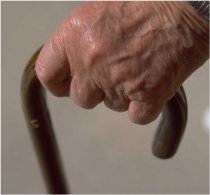 Researchers at the University of Washington have discovered a cellular basis for what many have long suspected: Men, as well as women, have a reproductive clock that ticks down with age.
Researchers at the University of Washington have discovered a cellular basis for what many have long suspected: Men, as well as women, have a reproductive clock that ticks down with age. A recent study revealed that sperm in men older than 35 showed more DNA damage than that of men in the younger age group. In addition, the older men's bodies appeared less efficient at eliminating the damaged cells, which could pass along problems to offspring.
"When you talk about having children, there has been a lot of focus on maternal age," said Narendra Singh, research assistant professor in the UW Department of Bioengineering and lead researcher on the study. "I think our study shows that paternal age is also relevant."
Charles Muller, with the UW Department of Urology and a collaborator on the study, recently presented the findings at the annual meeting of the American Society for Reproductive Medicine in Seattle.
In the study, researchers recruited 60 men, age 22 to 60, from laboratory and clinical groups. A computerized semen analysis was performed for each of the subjects, looking for breaks in sperm cell DNA and evidence of apoptosis, or cell suicide. Normally, when something goes irreparably wrong in a cell, that cell is programmed to kill itself as a means of protecting the body.
The researchers found that men over age 35 had sperm with lower motility and more highly damaged DNA in the form of DNA double-strand breaks. The older group also had fewer apoptotic cells - an important discovery, Singh said.
"A really key factor that differentiates sperm from other cells in the body is that they do not repair their DNA damage," he said. "Most other cells do."
As a result, the only way to avoid passing sperm DNA damage to a child is for the damaged cells to undergo apoptosis, a process that the study indicates declines with age.
"So in older men, the sperm are accumulating more damage, and those severely damaged sperm are not being eliminated," Singh said. "That means some of that damage could be transmitted to the baby."





